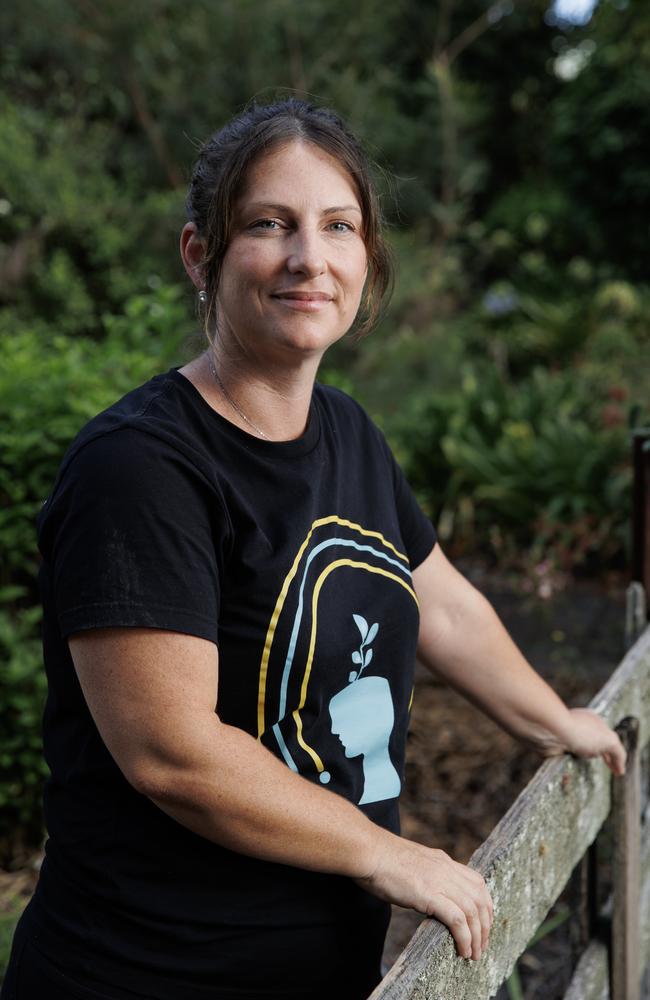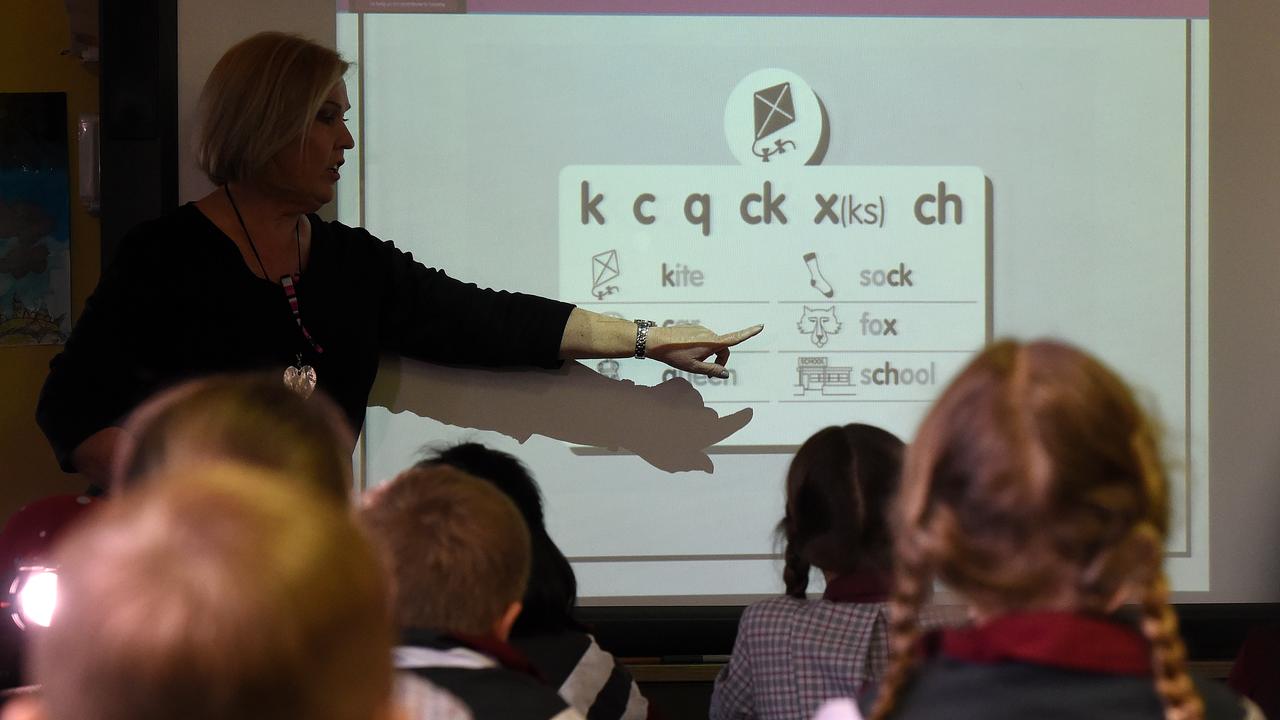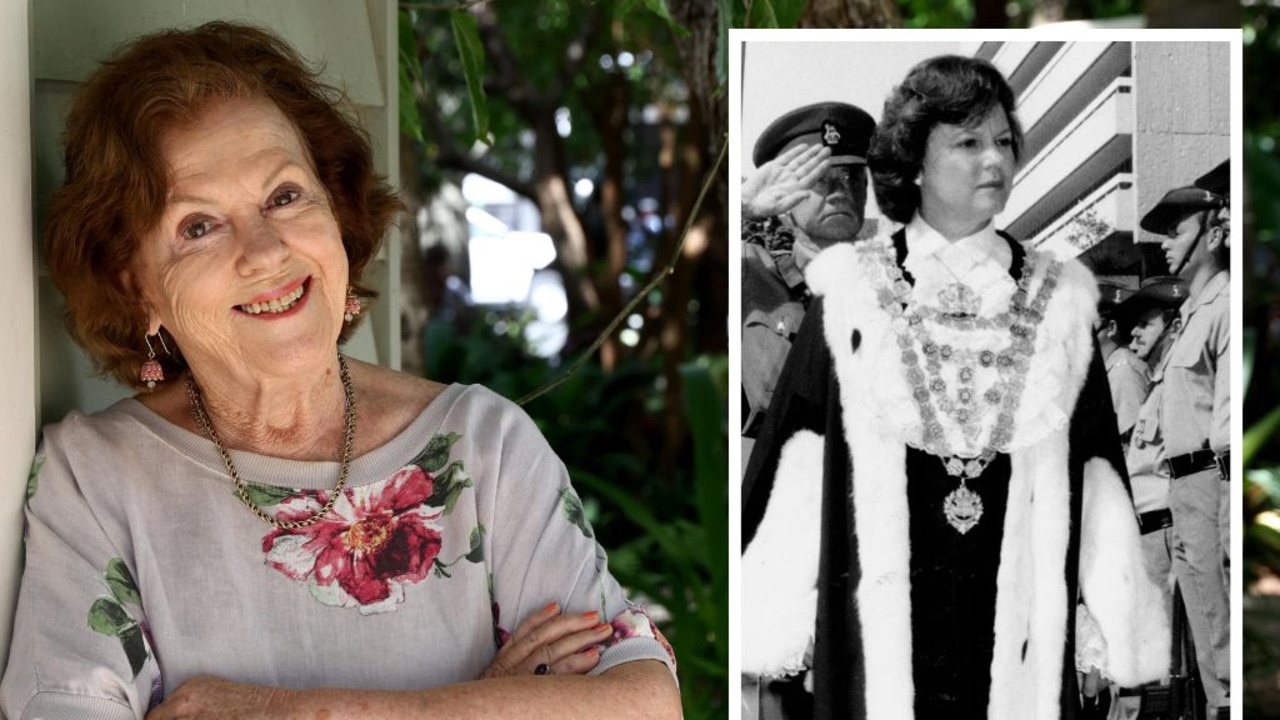Former teacher slams lack of respect for profession
A former teacher who was physically sick from stress has hit out at the lack of respect for the profession and issued a dire warning to those entering the classroom, as experts say children will suffer as more educators quit only years into the job.

QLD News
Don't miss out on the headlines from QLD News. Followed categories will be added to My News.
A former teacher who was physically sick from stress has issued a dire warning to new graduates of what to expect when they enter the workforce.
Ex-Queensland teacher Julie Tayyah has opened up the challenges she and thousands of colleagues faced daily and the reasons why she and so many others have embarked on new careers.
On top of face-to-face lessons, Mrs Tayyah would be hit with mountains of paperwork that overflowed after school. Lunch breaks would mean playground duty and 3pm meant supervising pick-ups.
Her weeknights would be spent marking and lesson planning for the next day.
Sunday afternoons would be spent preparing to go again.
After seven years it took a toll - physically and mentally.
“In my last year I had to get time off, physically ill which they said was from stress,” Mrs Tayyah said.
“We are a compassionate bunch but you just get so burnt out. You want everyone to succeed but even those who have been teaching 30 years feel it.”

A recent Productivity Commission study found teachers would spend just 40 per cent of the time face-to-face teaching, followed by 15 per cent lesson planning, 10 per cent marking, 9 per cent admin, 9 per cent supervision and counselling, 7 per cent other, 4 per cent extra curricular and 4 per cent communication with parents.
Mrs Tayyah, 39, who worked in the state school system on the Sunshine Coast in contract and relief teaching, said she was often so stretched trying to achieve the best results for students.
“I had a lot of children with special needs who required extra support, like one-on-one writing, showing them skills to get started on their work,” she said.
“The paperwork was massive. You couldn’t get it done during the day so it would roll into lunch break, then you’d be on playground duty and it would just spiral.”
Mrs Tayyah said the only true holiday break was over Christmas and that the stress gave her many sleepless nights.
The mother- of-two farewelled the industry in 2021 for a “collection” of reasons.
She now runs an oversubscribed tutoring business at Maleny which allows her passion for teaching to continue.
Mrs Tayyah said the public opinion of teachers having 12-week holidays and working 9am-3pm was an insult that frankly had to change.
“No I don’t think teachers are respected at all,” she said.
“They’re so undervalued and under appreciated I would have chosen a different career path knowing what I know now.”
CHILDREN TO PAY THE PRICE FOR TEACHER EXODUS
The current crop of children set to graduate over the next decade will pay a collective price from Australia’s chronic teacher shortage, academics say amid calls for teachers to be more respected, better paid and appreciated.
It’s no secret teachers are leaving the industry in droves and the rate of supply is not predicted to meet demand, according to federal education department research.
The latest government modelling shows the demand for secondary teachers will exceed the supply of new graduate teachers by 4100 by 2025.
Schools are already suffering from vacant positions.
Teachers are having to manage extra students, an overload of paperwork and principals are stepping back into the classrooms.
Government data from August last year showed there were 960 teacher vacancies in Sydney, 781 in Melbourne, 446 in Brisbane, 378 in Perth, 139 in Adelaide, 99 in Canberra and 31 in Darwin.
University of Sydney professor of education Anthony Welch all Australian states struggled to recruit and retain teachers, with rural and region turnover rates far higher than metropolitan cousins.

Prof Welch said recent studies showed up to 50 per cent of teachers farewelled the profession within the first five years.
“One of the things teachers complain about, again and again, is the heavy and increasing burden of reporting and compliance requirements, endless paperwork that takes time away from teaching,” Prof Welch said.
“State governments know the problem, and regularly promise to relieve the administrative burden, but they are the ones who created the problem with the endless demands for detailed performance data.”
Prof Welch said quality teachers were crucial to students succeeding.
However, compared to East Asian or European countries, he said Australian teachers did not garner the same respect.
“Good, well prepared, enthusiastic teachers make a real difference to kids’ lives, and generate better academic outcomes,” Prof Welch said.
“If we want our teachers to get the best results and produce the bright inquiring minds that will lead the next generation, we need to select high quality entrants into the profession, pay them well, and relieve the admin burden.”
Australian secondary teachers work an average of 45 hours a week, six hours more than the OECD average, according to the federal department.
Teachers also spend more than four hours per week on general administrative tasks, compared to the OECD average of 2.7 hours, which has significant implications on lesson planning.
“92 per cent of teachers say they ‘always’ or ‘frequently’ do not have enough time to prepare for effective teaching,” a teacher workforce shortage paper from the department read.
Academics say this has lead to a stampede of teachers at the exit door.
Throughout the past eight years in Queensland, 1999 permanent teachers quit the industry after less than three years in the job.
In NSW, which has a far larger population base, new government figures has revealed there were more than 3000 vacant teaching positions in the public system as of November 2022.
An internal report showed seven government schools had between 11-15 positions vacant.
In Victoria’s more than 100 public schools were crippled with more than 600 positions yet to be filled at the start of term 1 this year.
While in South Australia, a survey of 1600 teachers showed they were working 52 hour weeks.
Monash University education lecturer Dr Fiona Longmuir said students preparing to graduate having survived the Covid-19 lockdowns and impacts would pay the ultimate price from the teacher shortages.
“Teachers are the ones who help students grow and develop. Be a positive influence. But with the current trends, and the amount of teachers who are struggling, so many are hanging on, it’s a scary question” Dr Longmuir said of the long-term impacts.
“We have this group of students deeply impacted by Covid and if we continue to not have the resources, and with so many teachers being spread too thin. They’re not able to be as effective.”
Dr Longmuir pointed to her own studies, among others, which showed up to 70 per cent of teachers were considering leaving the industry.
She said in her experience, teachers who leave the industry were not likely to return unless there are significant changes.
“The overwhelming proportion of teachers leaving just couldn’t do it anymore, they found it impossible to do the amount of work that was expected,” she said.
“We need to celebrate teachers. We need to listen to them. More resources, more money, effort are needed and it will have a flow on effect on staff, students and communities.
“Teachers need to be respected and trusted. They are subjected to a phenomenal amount of performance data which shows a lack of trust. A focus on ways to support and trust teachers could really help.”
Originally published as Former teacher slams lack of respect for profession




